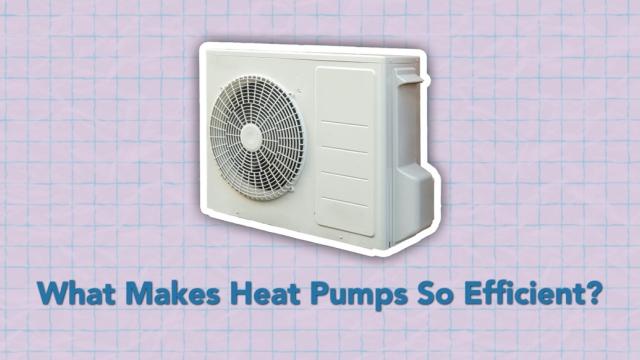What makes heat pumps so efficient? Let's start with how heat pumps work.
An air-source heat pump has a compressor and two coils — one inside and one outside. In the winter, refrigerant in the outdoor coil adsorbs heat from the air and turns into a gas. The gas travels to the indoor coil, where the heat is released as the gas condenses back into liquid. This warms up the space. In the summer, this process is reversed as the heat pump moves warm inside air to the outdoors, cooling down the space.
Unlike a conventional furnace, heat pumps never create heat, they only move it. Because the heat already exists, heat pumps can move more heat energy into a space than the electrical energy it takes to operate it. That means heat pumps are up to 300% efficient in some cases. Even the highest-efficiency furnaces can't compete with that, because they can never produce more heat than the fuel that goes into it.
Heat pumps are capable of heating or cooling your space with one unit. They don't produce any potentially harmful carbon monoxide, and they only move heat without having to produce it. That's about as efficient as it gets.
April 2024 Empowering Small Business
LADWP's monthly Empowering Small Business Newsletter helps inform industry-specific small business customers about LADWP news, conservation programs and ways to save on their bill.
Full Newsletter